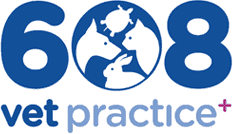The focus of this year’s Rabbit Awareness Week is ‘neutering’.
Neutering is essential not only to prevent unwanted pregnancy and fighting but it is also vital for our pet rabbit’s health. Neutering can be done around 6 months of age depending on the breed of rabbit.
Up to 80% of un-neutered female rabbits can develop cancer of the uterus by the age of 5.
Un-neutered male rabbits can become aggressive with other rabbits.
A neutered female and a neutered male are usually the most successful pairing.
Click here to find out more about rabbit neutering.
- The life expectancy of a rabbit can be anything between 8-10 years.
- Rabbits are incredibly sociable animals and if they don’t have the right company and lots of fun things to do, they can suffer. Always keep your rabbits in pairs or groups. The ideal pairing is a neutered male and female rabbit. Unfamiliar rabbits need to be introduced to each other very carefully and gradually under owner supervision, preferably in a space which is new to both rabbits.
- The Rabbit Welfare Association and Fund recommends that your rabbit’s hutch be large enough for “three hops” from end to end. That means a minimum of six feet long by two feet high by two feet deep. A 6ft x 2ft x 2ft hutch will allow your rabbit to hop, stand up, stretch, and move around comfortably.
- It is essential that you provide hides within their hutch for our little furry friends to hide away if they want too.
- Your pet rabbits should also have full access to a run or enclosed garden area with plenty of hides. This provides great stimulation as well as essential exercise.
- 85% – 90% unlimited grazed grass and hay, A small handful of rabbit-safe leafy greens, vegetables, and herbs. Pelleted rabbit food– around one egg cup a day per rabbit. Rabbit nuggets help ensure your buns get all the vital vitamins and minerals they need. A water bowl should always be provided as this is a much natural way for rabbits to drink and helps increase their daily water intake.
- Rabbits SHOULD NOT be fed any type of rabbit Muesli diet. This can contribute to dental disease; it can also contribute to obesity in rabbits as these types of diet usually have a higher sugar content than pelleted food.




